INSIDE ISSUE 19.45 | Nov. 6, 2020
 BIG STORY: Statehouse will be different for Dems in 2021
BIG STORY: Statehouse will be different for Dems in 2021
LOWCOUNTRY, Ariail: Insulting to whom?
COMMENTARY, Brack: Meet the Hartsville man who can make you laugh
SPOTLIGHT: The Felkel Group
MY TURN, Loftis and Morris: Students should take advantage of financial literacy opportunities
FEEDBACK: Send us your thoughts
MYSTERY PHOTO: Orange archway
350 FACTS: Lowcountry food traditions enliven the holiday season
Statehouse will be different for Dems in 2021

News analysis by Andy Brack | The $200 million spent in South Carolina on the U.S. Senate race between Republican Lindsey Graham and Democratic challenger Jaime Harrison sucked the oxygen out of down-ballot Democratic campaigns.
“Nationalizing the election just killed down-ballot races,” said one key Statehouse insider who asked not to be named.
More than 71 percent of South Carolina’s registered voters cast ballots on Tuesday, a 4-point increase from 2.1 million voters in 2016 to 2.5 million this year.
In Tuesday’s races, state Democrats lost three S.C. Senate seats, further eroding a minority already in peril. In the S.C. House, they’re lucky to have lost only two seats this week, which is a net loss of one position for 2021 after they picked up a coastal seat in a fall special election.
As it stands for the 2021 legislative session, South Carolina Republicans tightened their grip on power. They’ll open with 30 of 46 seats in the state Senate. In the House, they’ll start at 81 of 124 seats in the House. If the House GOP picks up just two more seats — a distinct possibility if districts are further gerrymandered next year following redistricting — House Republicans will have a supermajority. That would mean they wouldn’t have to have Democratic help to override vetos or make major procedural changes.
Losses of Sheheen, Norrell will have big impact
Voters on Tuesday unseated Democratic state Sens. Vincent Sheheen of Camden, Floyd Nicholson of Greenwood and Glenn Reese of Spartanburg. In the House, voters turned to Republicans to replace Democratic Reps. Mandy Powers Norrell of Lancaster and Laurie Slade Funderburk of Camden.
Each of the five has been successful in working across the aisle with Republicans to move legislation forward. But the losses of Sheheen and Norrell, who were the 2018 Democratic candidates for governor and lieutenant governor, shocked many in the Columbia establishment.

Sheheen has served for years as an intellectual leader among Democrats, writing a policy book and crafting major bills to replace the cantankerous state Budget and Control Board, reform the state pension system and provide 4-year-old kindergarten to children across the state. Additionally, as one senior Republican lawmaker commented, Sheheen is friends with GOP leaders and often worked with them to find “sweet spots” to make difficult legislation acceptable to both parties.
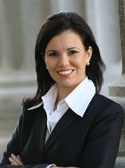
Like Sheheen, Norrell has been respected as a go-to leader who could be counted to work out deals on key legislation. Both, according to several insiders, will be sorely missed.
When asked why they lost, observers pointed to more voters in their districts who probably pulled straight-party GOP levers to cast their votes Tuesday because of how state elections were nationalized by unrelenting national partisan politics that erupted in the U.S. Senate race.
What else happened Tuesday?
“It was a very rough day for Democrats” in South Carolina, said College of Charleston political science professor Gibbs Knotts. “We live in a Republican state.”
He noted exit polls showed 42 percent of voters identified as Republican while 29 percent said they were Democrats and a like percentage said they were independent. Adding to the Democratic Party’s challenges in South Carolina is how 47 percent of voters said they were conservative, 37 percent were moderate and 15 percent considered themselves liberal.
And with all of the negative advertising in 2020 — particularly ads that tied Harrison to U.S. House Speaker Nancy Pelosi and Democratic Senate leader Chuck Schumer of New York — the state party’s “brand” suffered.
“When the national Democratic Party is labeled as liberal, that makes it really hard for South Carolina Democratic candidates,” Knotts said. And it didn’t help, others observed, that the top-of-the-ticket Senate race didn’t focus enough on South Carolina-themed messages to illustrate how state Democrats differ from Washington politics.
Another hurdle for state Democrats this year: Traditional voter turnout methodologies, such as rallies, door-knocking, house parties and other engagement strategies, suffered because of limitations caused by the coronavirus pandemic.
What’s next?
![]() To build strength, analysts say South Carolina Democrats have to find a unifying message to highlight their values, appeal to more voters and stick to the message. In other words, they have to get back to basics and try not to be cute with strategies like encouraging conservatives to vote for more conservative candidates than Republicans.
To build strength, analysts say South Carolina Democrats have to find a unifying message to highlight their values, appeal to more voters and stick to the message. In other words, they have to get back to basics and try not to be cute with strategies like encouraging conservatives to vote for more conservative candidates than Republicans.
“Harrison’s campaign has identified people in the state who are willing to support Democrats,” said Furman political scientist Danielle Vinson. “The party needs to build on that and figure out what was appealing about their message and what wasn’t.
“[Congressman Joe] Cunningham won two years ago because the Republican candidate was on the wrong side of a local issue, offshore drilling. Democrats have to figure out how to make their issues local—convince their Republican neighbors that climate change and racial justice issues matter. “
Fortunately for state Democrats in 2022, there won’t be a Republican presidential contest that will drive the GOP vote as much as it did this year.
“President Trump proved to be quite popular in South Carolina and most certainly had coattails that helped down-ballot Republicans,” Knotts said. “The same can be said for Lindsey Graham. There will not be a Republican president running in the next governor’s race.”
- To view election results, visit SCVotes.gov.
- Have a comment? Send to: feedback@statehousereport.com
Insulting to whom?
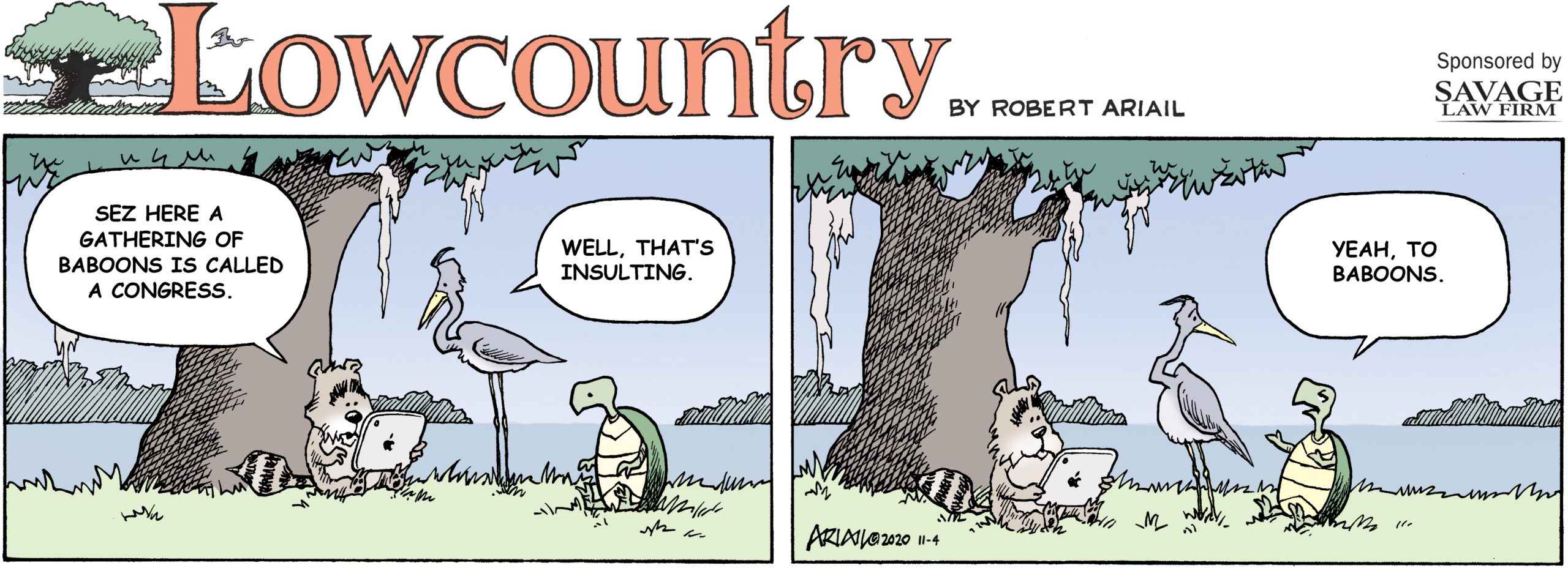
Enjoy this week’s cartoon by Robert Ariail, republished from our sister newspaper, the Charleston City Paper. Love it? Hate it? What do you think: feedback@statehousereport.com.
Meet the Hartsville man who can make you laugh
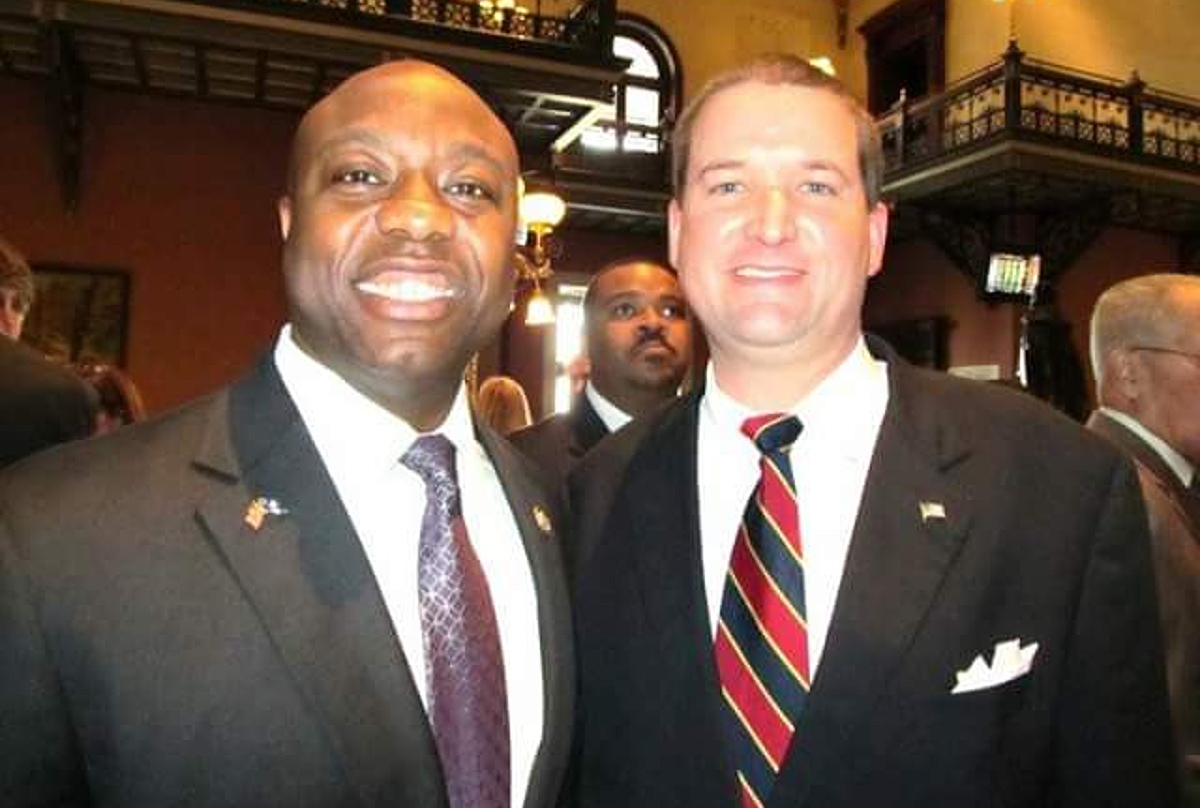
By Andy Brack, editor and publisher | There’s a guy over in Hartsville who you can bet on to give you a good laugh, particularly if you like politics. The good news: His humor works for Republicans, Democrats and anybody who loves Dollar General, lard and Bea Arthur as Maude.
 Just about every day, he’ll bring a smile to your face on Facebook through some wry observation, witticism or old-school joke that evokes the clean humor and one-liners of Jack Benny, Bob Hope, Steven Wright and Bob Newhart.
Just about every day, he’ll bring a smile to your face on Facebook through some wry observation, witticism or old-school joke that evokes the clean humor and one-liners of Jack Benny, Bob Hope, Steven Wright and Bob Newhart.
Meet Andy Williams, South Carolina’s equal opportunity political goofball. Sometimes he’s serious. Sometimes he’s full of prunes. Always though, he’s pithy with just the right thing to make you stop taking everything so seriously when you can’t get away from too-serious people openly displaying emotions on their sleeves.
On Tuesday night as election returns rolled in slowly, Williams wanted things to move along. Rather than complain, he joked:
“Hey Australia, can you tell me who won the election? I want to go to bed.”
Two minutes later came another zinger:
“This is more math than I signed up for. #USA”
Then came this perfectly-timed question: “Anything good on TV tonight?” That was followed by “I just want to pursue my dream of sleeping again” and “America needs a cold shower.”
Williams’s humor is often so simple that it’s complex. Sometimes, it seems shallow and slapstick. Other times, it’s rich with cultural insights.
Democrats love Andy Williams. So do Republicans. Years ago, he worked in Washington for Republican icon Strom Thurmond and then in Columbia for Democratic legend Fritz Hollings. He’s got thousands of friends. And he’s got pictures with politicians from Nikki Haley to Tim Scott.
Williams offers refreshing political observations that often are laugh-out-loud funny. What’s really amazing is that his stream of one-liners comes day after day, year after year, always ready to pounce onto your funny bone.
Just after midnight on election night: “Can someone just go pull a groundhog from its hole in PA and tell us if we’re going to have darkness for four more years?” Four minutes later: “Y’all, it’s not looking good for Kanye. #ElectionNight”
In the wee hours of Wednesday, President Trump claimed victory in the presidential contest, despite all votes not being counted. This led Williams to observe, “As long as we’re claiming things today and tonight in America, and anything seems to be appropriate to claim by some, I’m claiming that I’m younger and thinner than I really am.”
When a friend observed she needed to learn to keep her political thoughts to herself, Williams answered, giving insight into the methods of his sparkle: “I haven’t done anything. That’s the darn point. There is not a bit of political material on my page, only some general political humor and buffoonery. My page isn’t about any division or hurtful nonsense.”
As he proved Wednesday: “I LIKE it when it gets dark earlier. I like the nightlife. I like to boogie.” Or this: “When I became an adult, I was so unprepared for how expensive ziplock bags are. Carry on.”
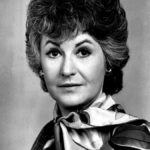
His comments often include references to all things Maude and Golden Girls. He’s also keen on Scooby Doo, Piggly Wiggly, disco, Dionne Warwick, Charlie Brown, Charles Nelson Reilly and Burt Reynolds. And he’s got a special place in his heart for his hometown, church, missionary work and political volunteering, as he showed Tuesday in a polling location in Darlington County. A voter started crying when she wasn’t let inside her precinct because rules prohibit wearing campaign material (she wore a Trump shirt).
“As most of you know, I always, always wear a blue blazer, ‘on duty anywhere,’ so guess what ole Andy did? I said to her, ‘Put this on, button it up, and go in and cast your vote.’ When it comes to my job, I have to be helpful and fair to all. I conduct my life that way, today everywhere else. We do what we have to do for our neighbors. It doesn’t matter what side you are on. We just need to love each other more. I’m also a sucker for a lady crying.”
Thanks, Andy. We all can use a little more common sense and humor in our lives.
Andy Brack is editor and publisher of Statehouse Report. His column also is published in the Charleston City Paper, Florence Morning News, Greenwood Index Journal, The (Seneca) Journal, Camden Chronicle Independent and Hartsville Messenger. Have a comment? Send to: feedback@statehousereport.com.
The Felkel Group
 The public spiritedness of our underwriters allows us to bring Statehouse Report to you at no cost. This week in the underwriter spotlight is The Felkel Group, a battle-tested public affairs and business development firm that assists corporations, associations and not-for-profits that are serious about their long-term success. The Felkel Group solves problems, crafts and delivers messages, helps organizations to manage crisis, and uses a wealth and breadth of valuable relationships to help to seal deals.
The public spiritedness of our underwriters allows us to bring Statehouse Report to you at no cost. This week in the underwriter spotlight is The Felkel Group, a battle-tested public affairs and business development firm that assists corporations, associations and not-for-profits that are serious about their long-term success. The Felkel Group solves problems, crafts and delivers messages, helps organizations to manage crisis, and uses a wealth and breadth of valuable relationships to help to seal deals.
The Felkel Group is also home to an outstanding advocacy tool called The Rap Index, a powerful intelligence tool that employs sophisticated computer modeling and profiling techniques to help organizations find their most effective advocates.
- To learn more about The Felkel Group and its Rap Index, go to: http://www.felkelgroup.com
Better financial literacy is a key to success

By Curtis Loftis and Jim Morris, special to Statehouse Report | Personal finance education has never been more relevant than it is today in the COVID-19 era. The virus has disrupted the finances of many hard-working citizens and left them wondering how to navigate their economic obligations.


But even before the arrival of the pandemic, studies had already shown that a lack of financial literacy has a detrimental impact on Americans. Without important knowledge about real-world topics such as loans, credit, taxes, and retirement, Americans can experience anxiety about money and often end up with growing debt that is difficult to overcome. Many states have attempted to respond to the need by incorporating personal finance into their education standards. However, close examination reveals this approach may not be enough.
While 45 states have at least included personal finance in their K-12 standards, only 21 of those actually require students to take a finance course. Fifteen of the 21 – including South Carolina – simply integrate personal finance into another course, such as social studies or math. The unfortunate result? Only six states truly require a comprehensive personal finance class before graduation.
As South Carolina schools begin implementing new personal finance academic standards, we know that preparing our educators to share these critical skills with our current generation of students is vitally important. That’s why, having worked together for many years to support K-12 financial literacy efforts throughout South Carolina, we saw the opportunity for a meaningful collaboration between the State Treasurer’s Office and SC Economics.
In January, the State Treasurer’s Office, through its Future Scholar College Savings Plan, and SC Economics, a statewide non-profit dedicated to providing training, tools and resources for K-12 teachers in economic education and financial literacy, launched a program to bring personal finance education into classrooms.
The South Carolina Financial Literacy Master Teacher Program is a bold, innovative initiative that aims to energize teachers about the importance of incorporating personal finance into their curriculum by providing not only financial incentives, but also tools and training since many do not feel equipped to teach these lessons. In fact, a study by the University of Wisconsin showed that more than 80 percent of teachers feel unprepared to teach personal finance.
The S.C. Financial Literacy Master Teacher Program offers a unique solution that emphasizes educators’ personal professional growth while increasing their confidence to teach financial literacy content.
In addition to exhibiting a passion for personal finance education, educators selected to participate in this new program must pass the national W!SE Financial Literacy Certification exam, participate in financial literacy professional development, and lead their own financial literacy training workshops. Workshops allow them to share best practices and learning adaptations with other educators so that financial literacy lessons can be taught cross-curricular and at all grade levels across the state. Educators are compensated for their participation in these workshops.
As teachers progress through the multi-year program at the Bronze, Silver and Gold levels of training, they receive more incentives for their work as they take on additional training and teaching requirements.
While still in its early stages, the program is already having a strong impact. Our first cohort, comprised of 36 educators, represented 36 different schools – 24 high schools, nine middle schools and three elementary schools – and 22 school districts. In the first six months, our small cohort of 36 trained an additional 320 teachers, reaching an estimated 32,000 students. Many of our “cohort one” teachers have committed to working toward receiving their Silver certification this school year, and we have already welcomed a new cohort of 39 educators who are starting the process of achieving their Bronze certification.
We recently adapted our training efforts to a virtual platform in order to continue to provide this vital financial literacy education in South Carolina for the foreseeable future. With its unique structure that emphasizes teacher training, we think the S.C. Financial Literacy Master Teacher Program will serve as a national model for other states to follow.
We are grateful to our teachers and the participating schools and districts that support them in their willingness to bring these vital lessons to the classroom. As South Carolina’s students head back to school this fall, we are excited to continue our efforts to bring them best-in-class financial education in hopes of improving their quality of life and their future financial health.
Loftis, elected state treasurer in 2010, serves as the state’s “private banker,” managing, investing and retaining custody of more than $50 billion in public funds. Morris, a West Point graduate with a 26-year ARmy career, became the CEO of SC Economics in 2013.
Send us your thoughts
We love hearing from our readers and encourage you to share your opinions. But to be published, you’ve got to provide us with contact information so we can verify your letters. Letters to the editor are published weekly. We reserve the right to edit for length and clarity. Comments are limited to 250 words or less. Please include your name and contact information.
- Send your letters or comments to: feedback@statehousereport.com
Orange archway

We bet just about anybody who lives in South Carolina, as well as many visitors, have seen this curious orange archway. But where is it? Send your guess to feedback@statehousereport.com. And don’t forget to include your name and the town in which you live.
Our previous Mystery Photo
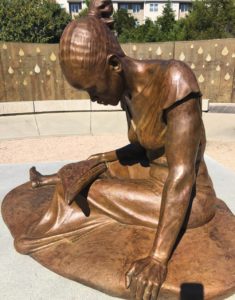 Our Oct. 30 photo, “Bronze sculpture,” is called “Alone with Memories” and is located in the Florence Veterans Park in Florence. Thanks to Barry Wingard for sharing the photograph.
Our Oct. 30 photo, “Bronze sculpture,” is called “Alone with Memories” and is located in the Florence Veterans Park in Florence. Thanks to Barry Wingard for sharing the photograph.
Congratulations to these sleuths for identifying the photo: Allan Peel of San Antonio, Texas; George Graf of Palmyra, Va.; and Will Bradley of Las Vegas, Nevada. First week in a while that no South Carolina residents guessed something in South Carolina. Hmmm.
Peel shared more on the sculpture: “The monument was sculpted by Alex Palkovich and was donated to the Florence Veterans Park on Veterans Day in 2016 in honor of all those who have been presented with a folded flag in memory of a loved one who never returned from war. The sculptor created the piece in memory of his parents, Fannie and Marcus Palkovich, both of whom were survivors of the concentration camps of Auschwitz and Mauthausen and who were liberated by the U.S. Army and Allied Armed Forces during World War II.”
Send us a mystery: If you have a photo that you believe will stump readers, send it along (but make sure to tell us what it is because it may stump us too!) Send to: feedback@statehousereport.com and mark it as a photo submission. Thanks.
Lowcountry food traditions enliven the holiday season
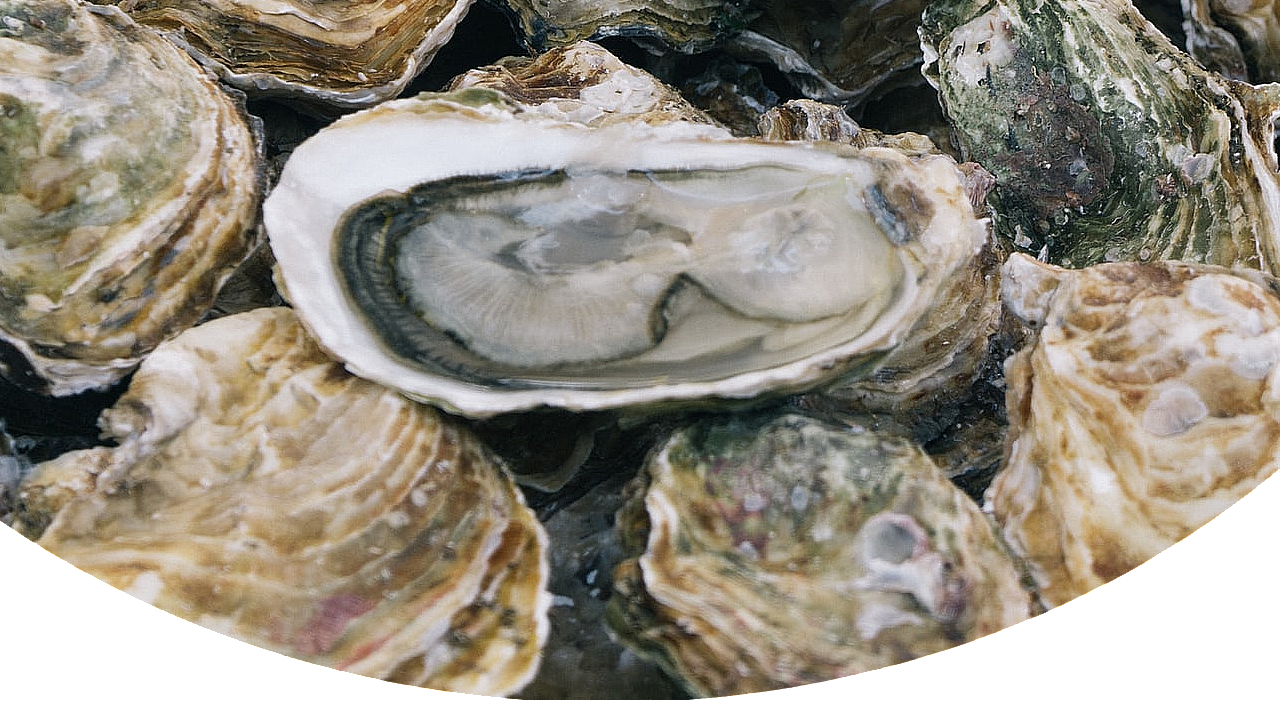
Staff reports | With Thanksgiving just around the corner, South Carolina tables will be filled with locally-sourced, Lowcountry food traditions, from briny oysters and shrimp to Hoppin’ John and red rice. Here’s a look at some food history and traditions from Chapter 7 of our new book, 350 Facts About Charleston.
Lowcountry’s oysters are a briny delicacy
 Connoisseurs of oysters often believe the salty, just-right-sized clusters hammered from the marshes of the Lowcountry are among the world’s best. Culinary wizards Matt and Ted Lee say they’re the flavor of the Lowcountry, describing roasting oysters over a wood fire as the quintessential Charleston experience — “the outdoor, rustic-as-heck, shuck-your-own roast is the thing, and it says a lot about Charleston’s paradoxes and contrasts that the same ease and grace will be brought to an oyster roast as to high holidays with family.” The Lowcountry Oyster Festival tentatively is scheduled for the end of January.
Connoisseurs of oysters often believe the salty, just-right-sized clusters hammered from the marshes of the Lowcountry are among the world’s best. Culinary wizards Matt and Ted Lee say they’re the flavor of the Lowcountry, describing roasting oysters over a wood fire as the quintessential Charleston experience — “the outdoor, rustic-as-heck, shuck-your-own roast is the thing, and it says a lot about Charleston’s paradoxes and contrasts that the same ease and grace will be brought to an oyster roast as to high holidays with family.” The Lowcountry Oyster Festival tentatively is scheduled for the end of January.
The Lowcountry’s long history of oystering
Visitors to the Holy City in recent years have been able to enjoy both “R” month oyster roasts and year-round singles at area raw bars and restaurants. The wild oyster population is not what it once was, though. From the late 1880s to just after World War II, the oyster industry had its heyday and was South Carolina’s most valuable fishery — in 1902, oysters were responsible for 45 percent of the value of all South Carolina fisheries. From 1900 to 1935, oyster canneries grew in number, employing thousands of workers and processing most of the state’s oysters to then be shipped to many parts of the world. The primary oyster industry centers were located in Bluffton, Beaufort, Port Royal, Folly Beach, Awendaw and McClellanville.
Hoppin’ John is more than rice and peas
Hoppin’ John means two things to Charlestonians. First, it’s a rich mixture of two Lowcountry kitchen staples — rice and black-eyed peas — that reflects the region’s culinary heritage, which stemmed from the pots and traditions of enslaved Africans. The dish is often flavored with spicy sausage, bacon, ham or pork fat, with some recipes adding onions, fresh tomatoes and seasonings. Residents of Charleston also know “Hoppin’ John” to be a nickname for culinary writer and historian John Martin Taylor, who ran the culinary bookstore Hoppin John’s in Charleston from 1986 to 1999. Taylor played a crucial role in educating people across the South about the importance of traditio
- ORDER NOW: Copies are in Lowcountry-area bookstores now, but if you can’t swing by, you can order a copy online today.
ABOUT STATEHOUSE REPORT
Statehouse Report, founded in 2001 as a weekly legislative forecast that informs readers about what is going to happen in South Carolina politics and policy, is provided to you at no charge every Friday.
Meet our team
- Editor and publisher: Andy Brack, 843.670.3996
- Special correspondent: Lindsay Street
Donate today
We’re proud to offer Statehouse Report for free. For more than a dozen years, we’ve been the go-to place for insightful independent policy and political news and views in the Palmetto State. And we love it as much as you do.
But now, we can use your help. If you’ve been thinking of contributing to Statehouse Report over the years, now would be a great time to contribute as we deal with the crisis. In advance, thank you.
Buy the book
Now you can get a copy of editor and publisher Andy Brack’s We Can Do Better, South Carolina! ($14.99) as a paperback or as a Kindle book ($7.99). The book of essays offers incisive commentaries by editor and publisher Andy Brack on the American South, the common good, vexing problems for the Palmetto State and interesting South Carolina leaders.
More
- Mailing address: Send inquiries by mail to: 1316 Rutledge Ave., Charleston, SC 29403
- Subscriptions are free: Click to subscribe.
- We hope you’ll keep receiving the great news and information from Statehouse Report, but if you need to unsubscribe, go to the bottom of the weekly email issue and follow the instructions.
- Read our sister publications: Charleston City Paper (every Wednesday) | Charleston Currents (every Monday).
- © 2020, Statehouse Report, a publication of City Paper Publishing, LLC. All rights reserved.















 We Can Do Better, South Carolina!
We Can Do Better, South Carolina!